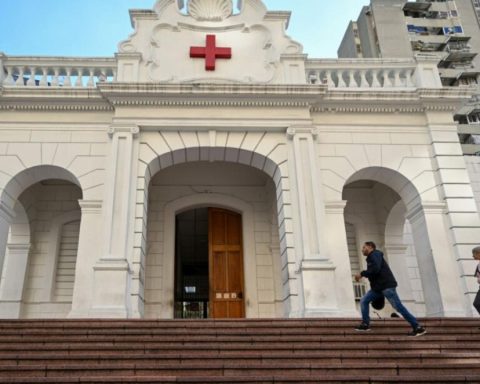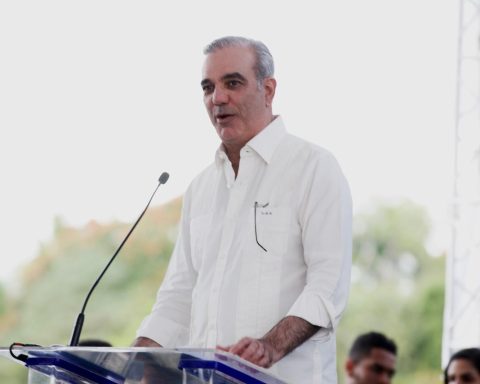Culture Minister Margareth Menezes defended this Tuesday (6) the need for public policies to promote the creative economy in Brazil. According to her, Brazil should look to successful examples implemented in other parts of the world that helped develop cultural industries.
“We must really activate this economy, because then it becomes something that feeds back on itself. But it will only feed back on itself from the moment we can really guarantee all this architecture, all the tools to qualify production. And make the population aware that we need to consume our culture, which is admired all over the world. You see that the platforms of streamings Today, he creates projects with Brazilian content, which become internationally successful,” he said.
The statements were made during participation in the Program Uncensoredproduction of TV Brazilbroadcaster of Brazilian Communications Company (EBC)), presented by actress Cissa Guimarães.
“I always say that talent is individual, but artistic achievement is collective. After a painter paints, he needs a whole chain of people to make his art reach others. We singers have our own talent, but we need the whole collective working around us to make it happen,” he added.
Margareth Menezes’ participation in the program TV Brazil occurs at the same time that Rio de Janeiro hosts the 3rd Meeting of the G20 Culture Working Group. The eventwhich is part of the agenda of the Brazilian presidency of the G20, is taking place at Casa Firjan, in the southern part of the capital of Rio de Janeiro. Over the last two days, there have been meetings between representatives of the cultural sector from the governments of the 19 nations that make up the group, as well as from international organizations and guest countries.
This Wednesday (7), the International Seminar on Policies for the Creative Economy: G20 + Ibero-America will begin, a space that will enable dialogue between government managers and civil society. A series of panels are planned for three days. Former Ministers of Culture, such as Gilberto Gil and Ana de Hollanda, will be present. According to Margareth Menezes, there will be a launch of the National Policy for the Creative Economy. Without giving specific details, she highlighted that this is a collectively constructed initiative.
“The creative economy ranges from our cinema to the person who makes crafts at home. In Brazil, it took us a long time to treat all of this as a business,” she said. She defended the importance of the sector. “The most recent research reveals that 3.11% of GDP [Produto Interno Bruto] of the country is generated by cultural industries”, he states.
She also noted that cultural development boosts the economy, as it distributes income, creates jobs and benefits the public budget, given the tax collection from cultural production. Margareth Menezes cited the Rouanet Law, which is aimed at raising and channeling resources for culture.
“It is an option that every citizen and every company has, in line with the Constitution. Any citizen can allocate up to 6% of their income tax and each company up to 4% to make a contribution, a sponsorship of a cultural event. And this cultural event, in order to have access to the resources, must comply with certain regulations, certain criteria, which also involve a social return. This is how the Rouanet Law works. The Ministry of Culture does not give money to anyone. And for every R$1 allocated, R$1.60 returns to the country’s economy,” he explained.
The minister also highlighted the transparency in the implementation of not only the Rouanet Law, but also the Paulo Gustavo Law and the Aldir Blanc Law, also aimed at the cultural sector. “People can enter the site of the Ministry of Culture and to know information about all the projects contemplated”. According to Margareth Menezes, the extinction of the Ministry of Culture in the previous government, led by former president Jair Bolsonaro, was part of an attempt to end public policies for the cultural sector. “This only didn’t happen because there was already a network of society itself that mobilized and kept our culture alive”.
G20
The world’s 19 largest economies, as well as the European Union and, more recently, the African Union, have seats in the G20. The group has established itself as a global forum for dialogue and coordination on economic, social, development and international cooperation issues. In December of last year, Brazil succeeded India as president. This is the first time that the country has held this position in the current G20 format, established in 2008. At the end of the year, Rio de Janeiro will host the G20 Summit, and the presidency of the group will be transferred to South Africa.
The Brazilian government has chosen three priority themes for its mandate: combating inequality and hunger, sustainable development and reforming global governance. According to the Minister of Culture, all departments are promoting debates on issues related to these priorities. She mentions, for example, the impacts of climate change. “We are discussing the issue of heritage and memory. Cultural heritage sites around the world are being affected by climate imbalance,” she says.
In November, Salvador will host the 4th Meeting of the G20 Working Group on Culture, when ministers responsible for the cultural sector from all the countries involved are expected to attend. Negotiations are taking place at these meetings to approve the G20 Declaration on Culture by consensus. The expectation is that the text will include proposals for culture to play an important role in sustainable development and in promoting a more just and inclusive world, with respect for cultural diversity and the rich cultural heritage of countries.

















